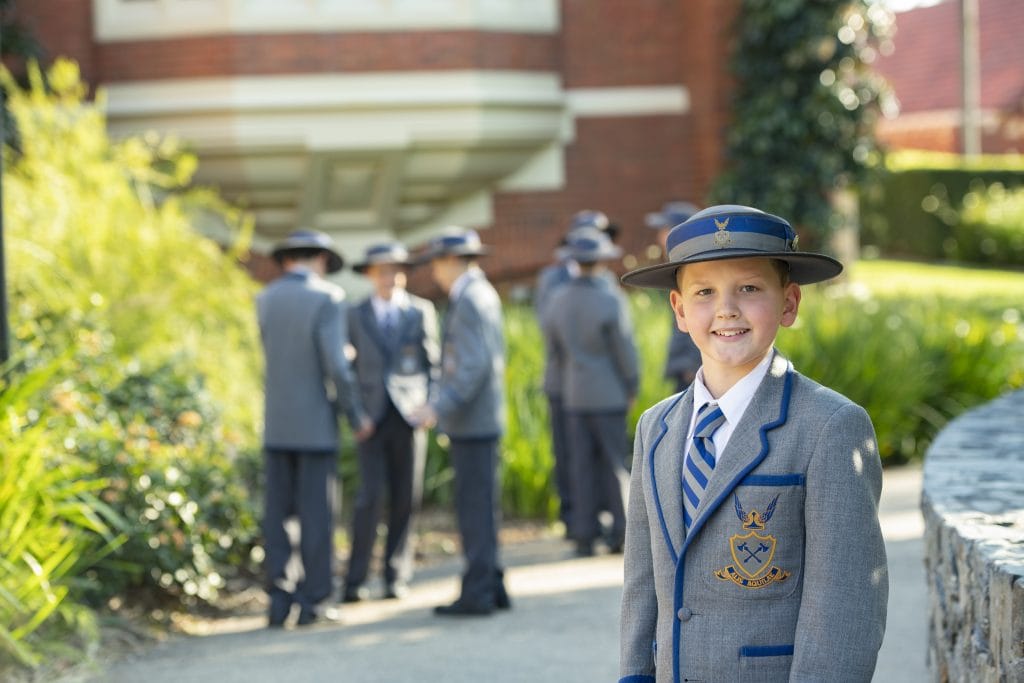While we acknowledge that not every child fits a stereotypical gender mould, whether by default of social and historical latency or by nature’s design, it is generally thought that boys and girls develop and learn differently. When choosing which school might be the best fit for your child, here are some benefits of an all-boys’ education to consider.
Learning style
All-boy schools, particularly those that consciously adapt to current data driven research, have considerable experience in understanding the learning and social needs of boys.
Many parents and educators will acknowledge that boys are more prone to fidgeting, pencil tapping, talking etc. Rather than seeing this noise and movement as a nuisance or distraction, educators at an all-boys school work to incorporate these behaviours into effective learning.
Boys often like to be active, so a learning approach that involves lots of movement, hands-on or physical activity, and even a touch of competitive challenge can be more engaging.
When it comes to communication, ‘show’ is often more effective than ‘tell’ for boys, and ‘do’ is even better. Teachers at an all-boys school understand this and tailor their lesson plans and activities accordingly, incorporating an active and memorable element to lessons to cement the learning.
Boys may also be likely to take ‘risks’ such as accepting the female role in a play, presenting their findings in class, challenging themselves further in sport, and putting their hand up for leadership roles when fear of failing in front of the opposite sex is no longer an issue.
The gender bias
Society has conditioned us to think that some activities and roles have ‘gender’ and that boys should be less interested in craft, or choir or the arts for fear of appearing unmanly. Students at an all-boys school can enjoy a range of activities that would traditionally see an over-subscription of female participants without fear of social retribution.
That’s not to say that there isn’t plenty to cater to a boy’s love of sport and physicality! Boys-only schools frequently become renowned for specialising in particular sports, focussing their budget, attention and coaching to excel in sports traditionally thought to be the tenet of men. You may hear one school described as a rugby school, while another would be considered a basketball school. If your son has a love or aptitude for a particular sport, this could be a factor in choosing a school for your child.
Social and peer support
The transition from childhood to adulthood means navigating those awkward teenage years. Physical and emotional maturity happens at a different rate and to a different extent for everyone, which can be a source of anxiety and comparison. At an all-boys school your son will know that everyone around him is going, will go, or has gone through the same or similar experiences. Peers and older student mentors can offer a wealth of support, comfort and guidance delivered in a peer-language that boys can relate to.
Being in an all-boys education environment also lessens the social distractions and pressures of forming romantic relationships. Flirtations and the pressure to ‘be in a relationship’ can cause undue stress, and as girls generally reach puberty earlier than boys, boys can feel forced to mature faster than they would otherwise choose. An all-boys school allows your son to build confidence, develop his personality, and remain a boy for as long as he wants or needs to.
The adult he becomes
There’s an expectation from those on the outside looking in, that an all-boys school encourages machismo. Instead, the peer support, empathy, teaching methods, reduced social pressures and opportunities afforded result in more graduates with a well-developed sense of self and academic confidence.
A single gender school allows your boy the opportunity to define himself. There are no girls to impress or ‘act-up’ to, and no gender stereotypes providing an invisible barrier to leadership roles and subject preferences – your son can simply get on with being himself.
In removing gender bias, boys have the opportunity to unlearn traditional stereotypes and fully explore their potential, leading them to pursue their own interests rather than conforming to career goals and roles that society expects of them. With no girls in the classroom, boys can learn how to interact with females in a healthy way through the schools’ partnerships with all-girls schools, social interactions with siblings, cousins, friends’ sisters, weekend sports clubs, parents and grandparents.
Still undecided? We’ve also written about the benefits of co-education here. If you have a daughter, you might also like to read about the benefits of an all-girls’ education here.
This article was featured in Issue 44 of our printed magazine, published February 2021.





